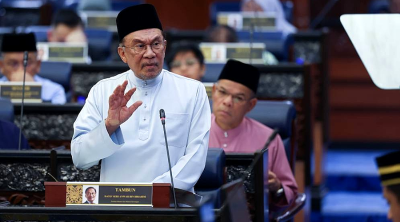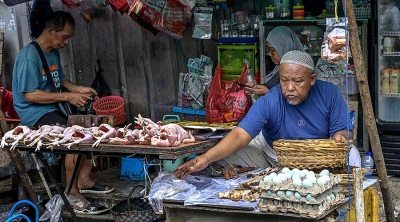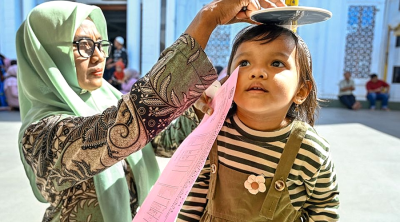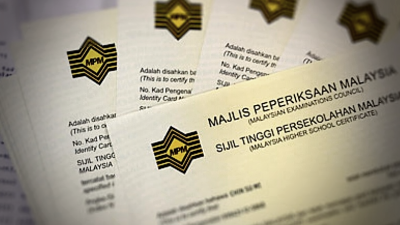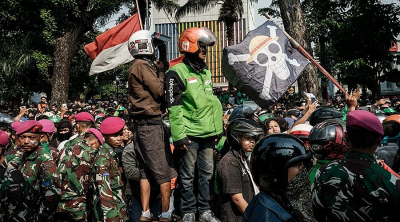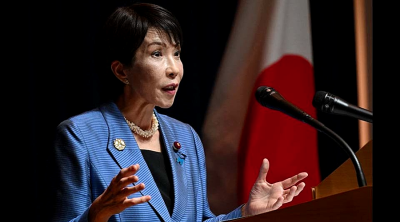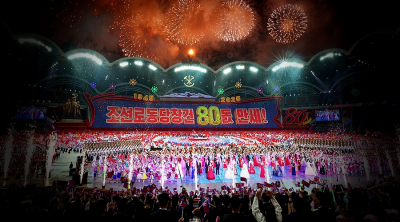
The protests in Indonesia, which have escalated to the point of blood being spilled on the streets, are not, strictly speaking, caused by the violence of the people, but by the misdeeds of the “fat cats.”
The “fat cats” here are Indonesia’s 580 members of parliament.
Not long ago, they orchestrated a move to grant themselves perks.
The deputy speaker of parliament announced a monthly housing allowance of 50 million rupiah (about RM12,850). This raised lawmakers’ monthly pay to at least 100 million rupiah (about RM25,700), not counting a wide range of other allowances. Those with higher positions could take home as much as RM60,000 to RM70,000!
This self-serving decision laid bare their greed.
Many of these politicians were already wealthy tycoons, using their parties and parliament to amass government contracts and business interests.
Quite a number also come from elite families, with politics only making them richer and more powerful.
This, unsurprisingly, ignited public anger.
At present, Indonesia’s minimum wage is about 5.4 million rupiah (RM1,388) in Jakarta and under 3 million rupiah (RM770) in non-metropolitan regions. The MPs’ housing allowance alone is 10 to 20 times that of a low-income worker’s monthly salary.
And the fat cats chose to fatten themselves at a time when Indonesia’s economy is in difficulty.
On paper, the gross domestic product is growing at about 5 percent, but the fiscal deficit is worsening, the rupiah is depreciating, markets lack investment and businesses lack vitality.
Worse still, prices are rising significantly while incomes stagnate.
Many companies have gone bankrupt or are in crisis, triggering mass layoffs. Youth unemployment has surged, reaching twice the levels compare to Vietnam and the Philippines. Many young people cannot find work or survive on temporary jobs that pay below the minimum wage.
This economic hardship, combined with political corruption, has turned Indonesian society into a powder keg.
The government, in its bid to reduce the deficit, cut social welfare, demanding sacrifices from the poor. Yet, MPs exempted themselves from hardship and awarded themselves hefty allowances. How could the people not be furious?
Since last week, tens of thousands have taken to the streets in major cities, demanding the removal of MPs’ allowances, the restoration of living subsidies, and a genuine crackdown on corruption.
But President Prabowo Subianto showed no leniency. Perhaps owing to his military background and hardline style—and with whispers of his shadowy role in the anti-Chinese riots over two decades ago—he deployed riot police armed with batons, tear gas, and water cannons to disperse demonstrators.
Such heavy-handed tactics inevitably led to tragedy.
PM Anwar Ibrahim and Prabowo share a close relationship. They would do well to heed each other’s warnings, rather than pretend nothing is amiss.
In a recent protest in Jakarta, a riot-control vehicle struck and killed motorcyclist Affan Kurniawan during a dispersal operation.
This incident inflamed nationwide anger, intensifying the protests.
Some demonstrators attacked police stations and government offices.
In Makassar, Sulawesi, protesters set fire to the parliament building, leaving three people dead.
Only then did Prabowo seem to realize the gravity of the situation. He appealed for calm, promised an investigation and offered condolences to the victims’ families.
From the current situation, there are three possible scenarios:
Prabowo scraps the fat cats’ allowance plan, focuses on revitalizing the economy, energizing businesses, strengthening the social safety net and embarking on bold political reforms, including tackling corruption.
This could quell public anger, restore calm and put Indonesia back on an upward path.
Prabowo strikes a compromise with the people—canceling MPs’ allowances and providing subsidies to citizens.
This may reduce or halt protests, but it will not erase public resentment nor heal deep-seated class divisions.
Indonesia’s structural problems would only be dragged on and not resolved.
Prabowo refuses to compromise, siding with the fat cats and corruption while continuing to suppress protests. This would trigger further waves of resistance, plunge politics into turmoil, cripple the economy and leave Prabowo empty-handed with his regime possibly collapsing.
Which path Indonesia takes ultimately depends on Prabowo himself.
The unrest in Indonesia offers Malaysia a warning.
Malaysia, too, has its share of political fat cats. While some have been prosecuted by the Malaysian Anti-Corruption Commission, others escape accountability and many more remain hidden in the shadows.
Meanwhile, the Madani government often appears indifferent to public discontent. Take the Zara case—without public pressure, there would have been no action. The Sabah mining scandal remains shrouded.
With rising living costs, a deputy minister even claimed RM100 was enough for two elderly people to live on for a month while RM100 million was donated to Palestine.
Even senior social activist Tan Sri Lee Lam Thye questioned why such funds could not be used for Malaysians themselves.
Prime Minister Datuk Seri Anwar Ibrahim and Prabowo share a close relationship. They would do well to heed each other’s warnings, rather than pretend nothing is amiss.
ADVERTISEMENT
ADVERTISEMENT






